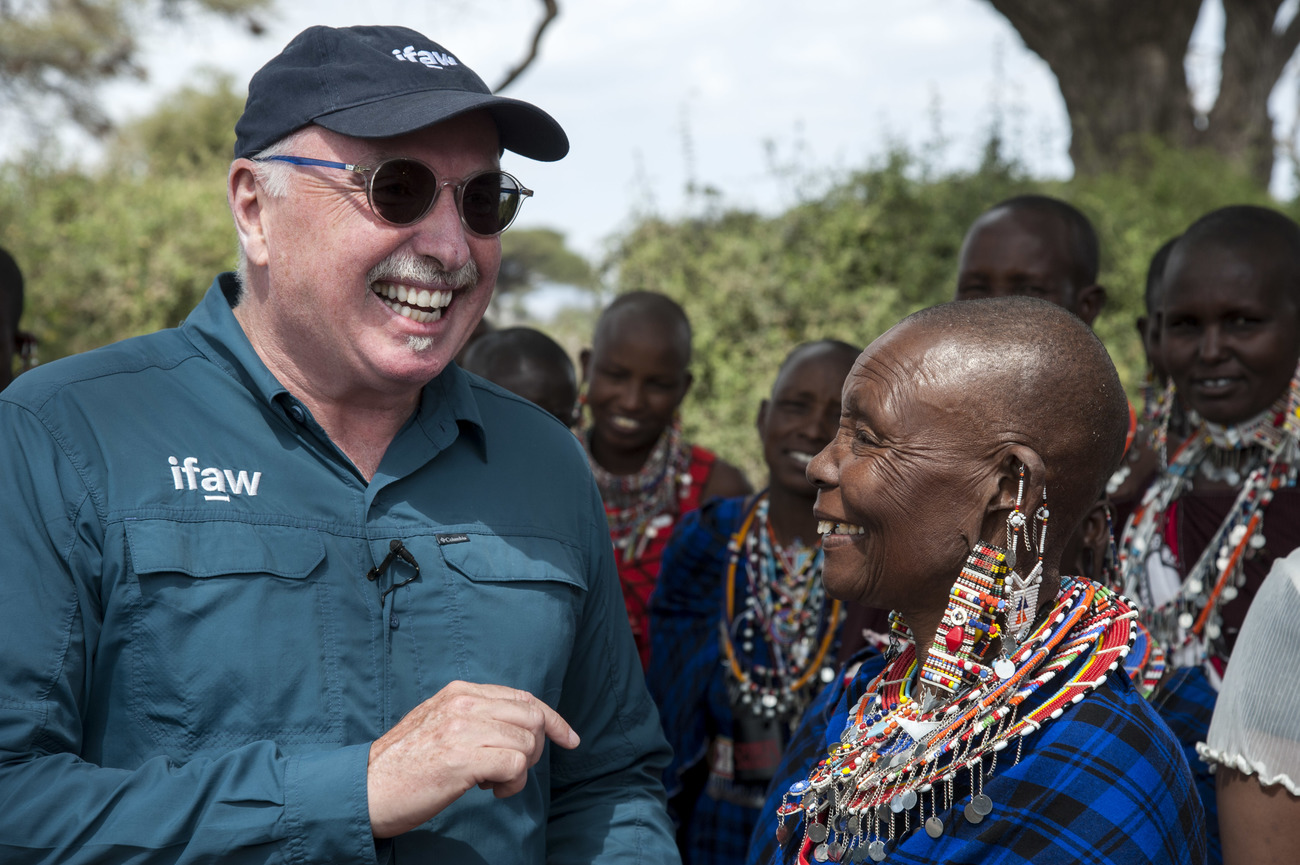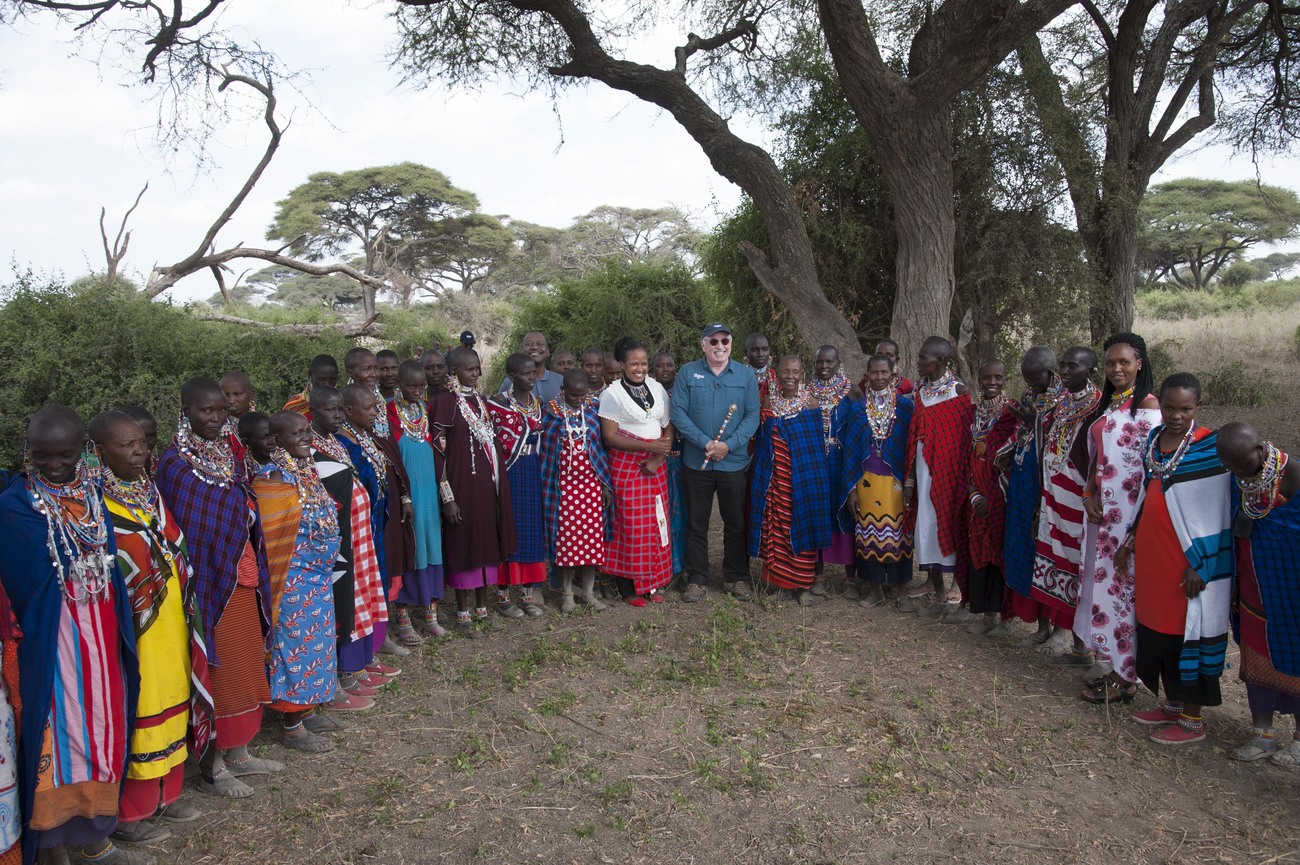tenBoma: Wildlife Security - Africa
In Africa, poachers are killing elephants every daymaasai women are changing the face of conservation
maasai women are changing the face of conservation

We are re-writing history for our children – these were the words spoken by Kirayian Katamboi from Kitirua village in Amboseli to the south of Kenya. Despite her diminutive almost fragile figure, Mama (mother to) Esther, as she is fondly referred to, speaks with eloquence and authority. She is a community leader who though has no formal education is knowledgeable about what it takes to co-exist peacefully with the wildlife that roam freely in her village. Through her and almost 200 women and counting, IFAW is changing the face of conservation. For the first time, these women feel included in community affairs regarding wildlife conservation – something that was the preserve of men in times gone by. The Maasai community and indeed most traditional settings in Kenya and in Africa are largely patriarchal. Women are hardly-ever consulted or involved in leadership and decision-making. Time is however slowly changing this as it has become evident that they have a lot to offer in terms of information, insights, experiences and soft skills that men sometimes lack.
In her village Mama Esther and almost 200 women have self-organized to form a community group known as the Enduata Kitirua group – Enduata is vision in the Maa language; while Kitirua is the village they come from. The group was officially registered in early 2018 and has become an avenue for the women to earn a living through sale of beadwork. They have also started a business to supply, at a profit, community ranger bases with monthly supplies. They are using the proceeds to educate two girls from economically disadvantaged families.
“IFAW has brought a lot of changes to our community - we now know that there are ways to live with wildlife. Thanks to the businesses we are undertaking, we can now afford to hire a motorbike to take our children to school to keep the children safe and avoid them encountering wildlife as they walk. Our eyes have been opened and we see things differently,” she said when addressing visitors to Kitirua village who included IFAW CEO and President Azzedine Downes. The women have undergone an attitude change and now see wildlife for its benefit and not as a nuisance stating that wildlife are a tourist attraction and they know that one elephant can educate 100 children. The beadwork and supplies businesses have also provided an income for the women to purchase solar-generated hand-held lanterns which they use around the homesteads to not only provide lighting but also keep wildlife away during the night – leading to less cases of predation on livestock.

Azzedine termed the visit “a learning one which has enriched my life.” “IFAW did not come with a plan to share with you but a mirror to reflect what you need. Women are the most involved in living with wildlife and I have much to learn from you. I am committed to working with you and I hope you accept our help to help you save the lives of animals,” he stated.
With most of the women never having gone to school, there is an urgent need for them to be educated on the English or Swahili names of wildlife so that they can effectively communicate them to wildlife rangers who do not speak the Maa language. Plans are under way to partner with the Ministry of Education to translate the names of wildlife from Maa to English and Swahili. This and other activities aimed at increasing literacy levels and subsequently protect wildlife require finances which we request our supporters to provide.
-Jacqueline Nyagah, Communications Director
Related content
Every problem has a solution, every solution needs support.
The problems we face are urgent, complicated, and resistant to change. Real solutions demand creativity, hard work, and involvement from people like you.